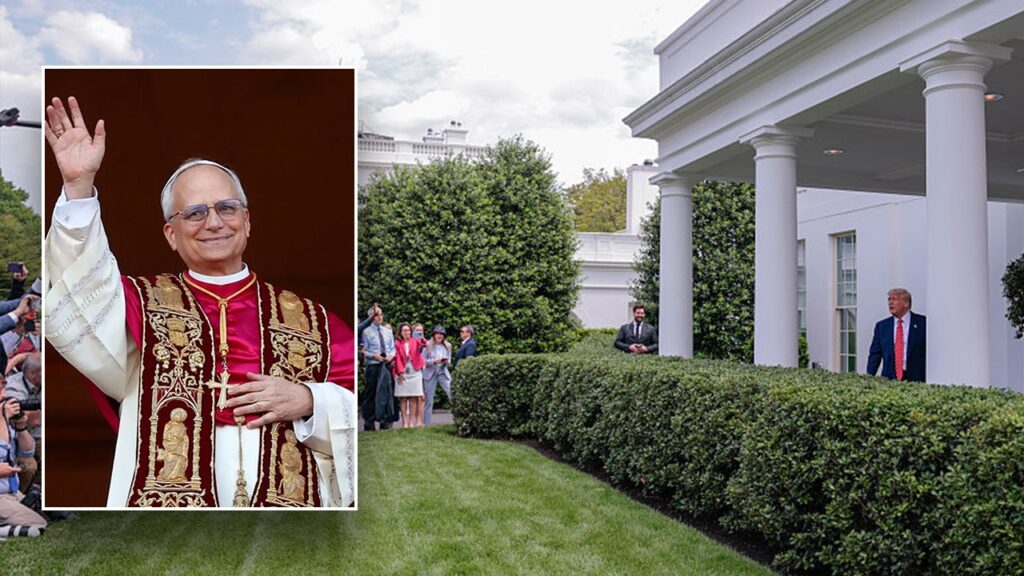On Thursday, a historic moment unfolded in the Catholic Church as Cardinal Robert Francis Prevost was elected the first-ever American pope, taking the papal name Leo XIV. The announcement arrived shortly after white smoke billowed from the chimney of the Sistine Chapel, signaling to the thousands gathered in St. Peter’s Square that a new pontiff had been chosen. This monumental event has reverberated across not only religious communities but also throughout political arenas, with President Donald Trump expressing his joy and excitement over this significant appointment.
Standing outside the White House, President Trump took the opportunity to share his enthusiasm with reporters. “What greater honor could there be?” he remarked from the West Wing portico, clearly elated by the news. He noted the surprise accompanying this development, stating, “We were a little bit surprised, but very happy. It’s just a great, absolutely great honor.” This comment reflects not only his personal feelings on the matter but also hints at the broader significance of having an American serve in such a prestigious and historical role within the Catholic Church.
To further communicate his congratulations, President Trump also utilized social media, posting a message on Truth Social that echoed his sentiments. He wrote, “Congratulations to Cardinal Robert Francis Prevost, who was just named Pope. It is such an honor to realize that he is the first American Pope,” showcasing his pride not only in the individual but also in the nation he leads. “What excitement, and what a great honor for our country,” he continued, reinforcing the idea that this election holds importance not just for the Catholic Church, but also as a notable moment in American history.
The sense of anticipation surrounding the new pope was palpable. President Trump added, “I look forward to meeting Pope Leo XIV. It will be a very meaningful moment,” hinting at the possibility of a meeting between the two figures in the near future. However, he refrained from elaborating on whether there would be an invitation for Pope Leo XIV to visit the White House soon, leaving some questions unanswered for those keen on the political implications of this new papal leadership.
In the announcement made to the public, Cardinal Protodeacon Dominique Mamberti revealed the elected pope’s identity to the faithful who had gathered, celebrating the outcome of roughly 24 hours of deliberation among 133 voting cardinals in a confined yet historical setting. The audience erupted with excitement upon hearing the news, recognizing the profound implications of this decision for both the Catholic Church and the community of American Catholics. The new pope, Cardinal Prevost, who is 69 years old and belongs to the Augustinian order, made his debut appearance on the balcony of St. Peter’s Basilica later, adorned in the traditional red cape associated with papal authority — a striking difference from the recent choices made by Pope Francis, who opted against wearing such attire upon his own election back in 2013.
This significant transition in papal leadership marks a new chapter in the Catholic Church’s history and introduces a blend of national pride and religious significance. As various figures from religious, political, and media communities continue to respond to this election, the implications of having an American leader within the Vatican will likely continue to be a point of discussion and analysis in the days and months ahead. In light of this momentous election, observers will be eager to see how Pope Leo XIV approaches his leadership role and the potential changes he may bring to the papacy and the wider church community.



